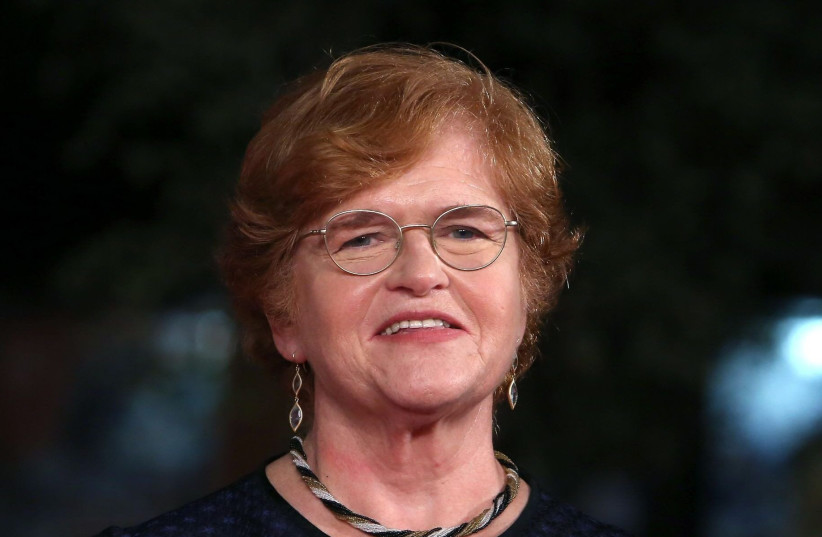On June 30, dozens of young ultra-Orthodox men disrupted several bar mitzvah ceremonies at Ezrat Yisrael, the area of the Western Wall reserved by the government for egalitarian prayer.
At one service, haredi students chanted “Christian” and “Nazi” while blowing whistles, as the bar mitzvah boy, who had traveled from the US, continued to pray.
In recent years, incidents of intimidation directed toward Conservative and Reform Jews have prompted US Jewish institutions to advocate for enhanced security and egalitarian options at the Western Wall.
In a July 4 letter congratulating Israel’s caretaker Prime Minister Yair Lapid on his new role, the heads of various Jewish groups, including the Jewish Federations of North America, while extolling the virtues of “ahavat Yisrael,” demanded that concrete “action be taken so that Jews of all streams feel at home, safe and welcome at the Kotel.”
Soon after, US Special Envoy for Monitoring and Combating Antisemitism Deborah Lipstadt tweeted that if such “incitement happened in any other country, there’d be little hesitation in labeling it antisemitism.”

While the June 30 episode deserves condemnation, the Jewish community’s swift reaction to harassment leveled at non-Orthodox Jews differs from the relatively muted response following assaults against the US ultra-Orthodox community, whose neighborhoods are witnessing rising antisemitism.
Hassidim in Brooklyn are routinely subjected to attacks similar to the one that occurred last April, where assailants repeatedly punched a haredi male, resulting in injury. On another occasion, a hassidic Crown Heights resident was kicked and beaten by a man hurling antisemitic epithets. According to the Anti-Defamation League (ADL), of the 51 total antisemitic assaults that were reported in New York state in 2021, over half (34) took place in Brooklyn.
Yet despite the alarming uptick in violence, Jewish groups like the JFNA continue to emphasize hate crimes aimed at non-Orthodox Jews and other minority groups. Online statements decrying antisemitism amplify “from Pittsburgh to Colleyville” yet fail to mention Crown Heights, Brooklyn and Williamsburg, where antisemitic violence is frequent.
With the haredi manner of dress and degree of observance far different from the majority of US Jews, the mainstream Jewish community’s refusal to seriously confront the slew of attacks in haredi neighborhoods reflects a level of indifference with which they view their Jewish counterparts.
Incidentally, undermining the fight against Jew hatred is the current politicization of antisemitism. It bears mentioning that in many cases, crimes against haredim residing in ultra-Orthodox neighborhoods are perpetrated by minorities.
Perhaps fearful of offending the left-wing sensibilities of their congregants, Jewish leaders instead focus on crimes that both target nonobservant Jews and are committed by offenders with links to right-wing extremists. Calling attention to the violence spreading within ultra-Orthodox communities would also potentially complicate the relationship between Democrat lawmakers and liberal-leaning Jewish institutions.
Ignorance of haredim misguided, sabotages future
THE JEWISH establishment’s ignorance of haredim not only is misguided but also sabotages future Jewish institutional health. According to the 2020 Pew Research Center’s survey of Jewish Americans, 11% of US Jewish adults under the age of 30 are haredim, or ultra-Orthodox, compared with 1% of Jews 65 and older. As birth rates among non-Orthodox Jews remain stagnant or are falling, ultra-Orthodox communities continue to grow.
As Eli Spitzer notes in his article for Mosaicmagazine.com, “any major Jewish organization that wants to continue to act for, or on behalf of, the Jewish people must starting now, take into account the growing prominence of haredim, or risk increasing irrelevance.”
Spitzer points out that the JFNA, the ADL and AIPAC have virtually zero haredi representation.
The ADL’s recent appointment of Rabbi Charlie Cytron-Walker as special adviser on security confirms Spitzer’s assertions. Andres Spokoiny, CEO of the Jewish Funder’s Network, admitted in an interview for ejewishphilanthropy’s Daily Phil that one of the challenges of integrating haredim is that “you would need segregated spaces. Are you willing to do that? I’m not, but that’s a dilemma.”
While disappointing, statements underscoring the exclusion of haredim from Jewish communal life are also a departure from courtesies extended to the religiously unaffiliated by the ultra-Orthodox community. In 1965, the late hassidic Rabbi Hershel Weber founded Hatzalah, the largest nonprofit ambulance service in the United States. The mostly Orthodox volunteer force fields over 70,000 calls a year and responds to emergencies regardless of victims’ religious persuasion.
Similarly, in 2005, two members of Brooklyn’s hassidic community, Mordechai Mandelbaum and Alexander Rappaport, opened Masbia, the New York-based nonprofit kosher soup kitchen and food pantry, where everyone is treated like a mensch. Masbia provides over 2,000,000 meals yearly to Jewish and non-Jewish families.
US Jewry and antisemitism
IN FAIRNESS, US Jewry’s reluctance to condemn antisemitism within ultra-Orthodox neighborhoods and a failure to acknowledge their goodwill does not excuse the abhorrent behavior witnessed at the Western Wall. Yet disaffected Jewish pluralists must recognize that trust is rarely built on policies tinged with paternalism.
To some degree, haredi disruptions are motivated by progressive approaches to Jewish traditionalism. In just over 30 years, the US Jewish community has successfully lobbied to liberalize prayer in Israel. Such inroads now include allowing women to read from the Torah and don a tallit while at the Wall.
The Wall is considered a holy site and acts as a synagogue. Those protesting its restrictions would likely think nothing of covering their heads or removing shoes before touring other religious destinations, such as the Grand Mosque in Abu Dhabi. For its part, Israel should be weary of embracing an American brand of liberalism that, demographically speaking, is something short of a success story.
US Jewish leaders committed to pushing pluralism in Israel should consider joining the thousands of new olim last year, who are able to effectuate change through voting on internal Israeli matters.
Until then, with a touch less arrogance and a bit more humility, American Jewish institutions can begin engaging rather than ignoring a critical and ascendant part of the Jewish people.
The writer resides in New York. Her work has appeared in The American Spectator, JNS, The Jerusalem Post, and Israel Hayom.
